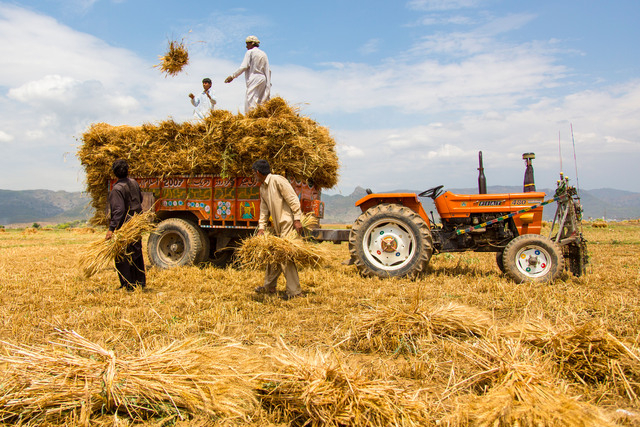Pakistan’s agriculture sector is on the brink of collapse, with wheat farmers alone suffering catastrophic losses totaling Rs 2.2 trillion. This crisis is the result of failed government policies, extreme weather conditions, and widespread mismanagement, putting the country’s food security and rural economy in grave danger.
A Perfect Storm of Crisis
1. Failure to Uphold Support Prices
The government announced a minimum support price (MSP) for wheat to protect farmers, but the promise was never implemented effectively. As a result, many farmers were forced to sell their wheat at prices far below the official rate, driving them into heavy debt and financial despair.
2. Climate Extremes Disrupt Production
A severe winter drought dramatically reduced rainfall and irrigation water. This led to significantly lower crop yields in major wheat-producing regions. Farmers faced dry soil conditions, increased input costs, and poor harvests, worsening their losses.
3. Poor Market Management
Unregulated imports, overstocking of wheat, and inconsistent government procurement have flooded the market. These disruptions caused local wheat prices to crash, leaving farmers with unsold stocks and massive financial shortfalls.
Economic and Social Fallout
The cumulative loss of Rs 2.2 trillion in wheat alone has sparked outrage among farming communities. Many have taken to the streets, demanding relief, fair pricing, and an end to exploitative market practices. The situation has led to rising food inflation, disrupted rural economies, and growing fears of a looming food shortage.
What Needs to Be Done
To avert a national agricultural disaster, the following urgent reforms are needed:
- Enforce Minimum Support Prices (MSP): Ensure farmers receive fair compensation for their crops.
- Control Imports Strategically: Regulate foreign wheat imports to avoid market glut and protect local producers.
- Introduce Climate-Resilient Practices: Invest in sustainable farming techniques and water management to combat climate shocks.
- Provide Direct Financial Relief: Offer subsidies, soft loans, and debt relief to struggling farmers.
- Streamline Supply Chains: Modernize procurement and storage systems to reduce post-harvest losses and price manipulation.
Conclusion
The Rs 2.2 trillion loss in wheat farming is not just a number it reflects the despair of millions of farmers and the risk to Pakistan’s food future. Unless swift and bold reforms are implemented, the agriculture sector could face irreversible damage, dragging down the nation’s economy and stability.



Comments (0)
No comments yet. Be the first to comment!
Leave a Comment